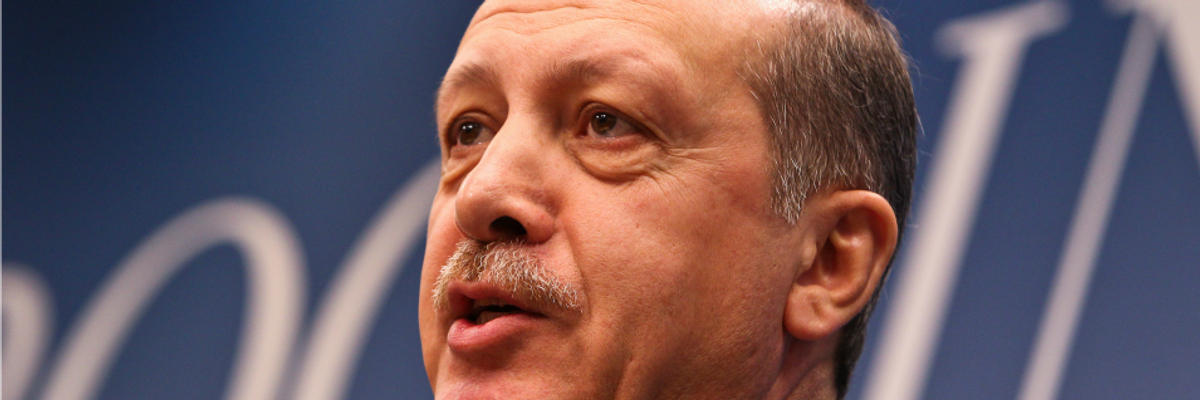Trump critics this weekend tied the administration's decision to continue U.S. military presence in Syria to Turkey's aggressive bombing of U.S.-backed Kurdish forces in the country's northern region.
Dozens of Turkish jets bombed more than 100 targets on Saturday as members of the Turkish-backed Free Syrian Army crossed into the Kurdish-controlled area of Afrin and fought militias there. At least eight people were killed.
The fighting came days after Turkish President Recep Tayyip Erdogan accused the U.S., Turkey's NATO ally, of "insisting on forming a terror army on our borders" in response to the Trump administration's plan to arm and train 30,000 Kurdish forces.
"Our mission is to strangle it before it's even born," Erdogan warned last week.
The Department of Defense said Wednesday that the decision to back the Kurdish "Border Security Force" would "enhance security for displaced persons returning to their devastated communities" and keep ISIS from reemerging in the region.
The State Department denied this week that the U.S. was supporting a Border Security Force. But Secretary of State Rex Tillerson's insistence that the plan has been "misportrayed" did not stop Turkey from waging an attack on what Turkish officials called an "illegitimate foreign presence."
Brooklyn College professor Louis Fishman, who writes on Turkish and Middle Eastern affairs, said the Turkish offensive exposed the U.S. policy of "open-ended" presence in Syria, with an estimated 2,000 Americans stationed there, as poorly planned and dangerous.

